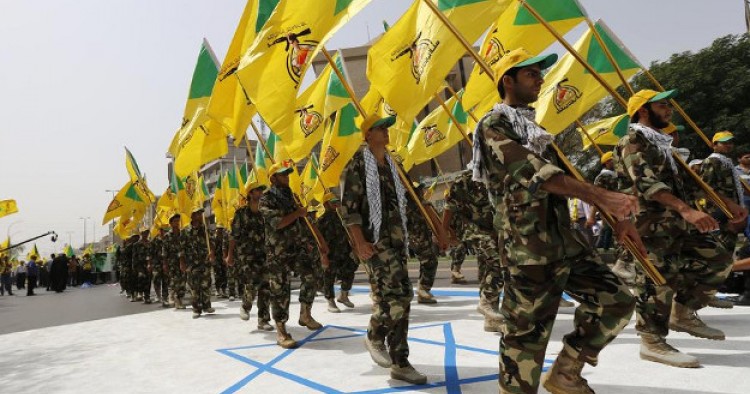The Iraqi Hezbollah welcomed the latest decision by the country’s parliament to devise a timetable for the withdrawal of foreign troops and accused the American forces of promoting instability in the war-torn country. “America will create new terrorist groups to justify keeping its forces in Iraq,” the milita group said in a statement. Mohammad Mohayi, the group’s spokesman, also told Lebanon’s al-Mayadeen new outlet that “the parliamentary decision put an end to debates and conflicts about the withdrawal of foreign troops from the country.” He added: “The American forces are trying to impose its presence over the Iraqi government. It is not appropriate to keep silent in this regard, but this needs to be confronted. The government needs to be serious about preparing the timeframe for the exit of foreign troops.”
Comment: On March 1, the Iraqi parliament called on the government to set up a timeline for the withdrawal of foreign troops that have helping the Iraqi security forces in the fight against ISIS. The vote was organized by the Shiite ruling coalition in the parliament. With the May 12 parliamentary elections nearing, Iran-backed Iraqi militia leaders and politicians have made the issue of US withdrawal a key election theme. By promising to expel all foreign forces from the country, these groups want to win the votes of nationalists, and they also put pressure on the Baghdad government.
With the collapse of ISIS in Iraq and Syria, Iran’s militia allies in Iraq also increasingly threaten violence against American troops. Kata’ib Hezbollah, also known as Kata’ib Hezbollah, last month issued a statement warning that its fighters will begin to militarily confront American troops “at any moment” if Washington decides to keep a long-term military footprint in Iraq. Kata’ib Hezbollah is a unit within Iraq’s Popular Mobilization Force (PMF) and is closely associated with Iran and the Lebanese Hezbollah.
Several other Iranian-backed PMF groups have made similar threats against US troops, which are training and advising the Iraqi security forces. "The two governments should co-ordinate to ensure a full withdrawal. US presence will be cause for internal polarization and a magnet for terrorists," said Kareem Nuri, the spokesman for the powerful Badr Organization, which has close ties with Iran’s Quds Force and controls Iraq’s Interior Ministry.
Asa’ib Ahl al-Haq and Harakat al-Nujaba – two other Iranian-sponsored PMF units that fight both in Iraq and Syria – have also made similar threats. The Nujaba group warned that American troops in the region are “legitimate” targets after the Trump administration declared Jerusalem as Israel’s capital. “Trump’s foolish decision to make Jerusalem the Zionist capital will spark a major uprising to excise this entity (Israel) from the body of the Islamic nation, and is a legitimate justification to target American troops,” said Akram al-Kaabi, the group’s leader, according to a statement published on Nujaba’s website.
The recent escalation in anti-American statements by the IRGC and its proxies suggest that the Iranian-backed militia forces in Iraq are now focusing on undermining US interests in Iraq and are trying to speed up the US withdrawal from the country now that the Islamic State – the common enemy of Tehran and Washington at present – is defeated. Second, the IRGC may also be trying to send a message to the Trump administration that it will retaliate through its regional proxies if Washington pursued a more aggressive policy vis-à-vis Tehran.
Recently, Tehran and its allies in Iraq have also set their sight on the upcoming Iraqi parliamentary elections slated for May 12. Several prominent Iranian-backed Shiite PMF groups have formed the Fatah Alliance to compete in the elections. Hadi al-Amiri, the head of the Badr Organization, is head of the new coalition which also includes other Iranian-supported groups such as Asa’ib Ahl al-Haq and the Iraqi Hezbollah.
If Iran’s allies manage to secure a dominant position in the next Iraqi parliament, they will certainly increase pressure on the American forces to leave the country.
The Middle East Institute (MEI) is an independent, non-partisan, non-for-profit, educational organization. It does not engage in advocacy and its scholars’ opinions are their own. MEI welcomes financial donations, but retains sole editorial control over its work and its publications reflect only the authors’ views. For a listing of MEI donors, please click here.













